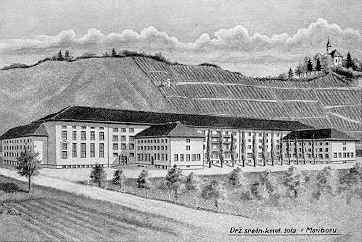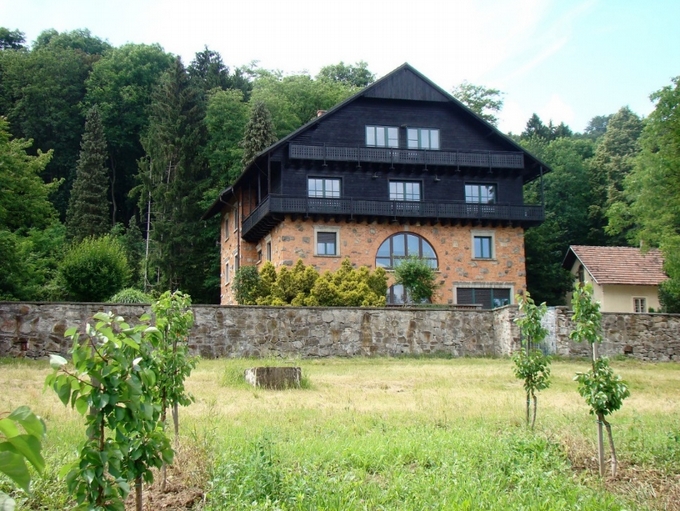Warning: Trying to access array offset on value of type bool in /home/fkbvweb/public_html/wp-content/plugins/elementor/includes/base/widget-base.php on line 223
Warning: Undefined array key -1 in /home/fkbvweb/public_html/wp-content/plugins/elementor/includes/base/controls-stack.php on line 695
About the Faculty of Agriculture and Life Sciences
– Research, education and knowledge transfer to meet the needs of agriculture, food processing and related industries.
– Co-creation of public opinion and active policy in favour of food security, self-sufficiency in natural, environmentally friendly and locally produced food, preservation of cultivated agricultural land, increasing biodiversity, reduction of greenhouse gas emissions and other pollutants in the environment.
– Values: the mission is based on honesty, curiosity, creativity, freedom of spirit, cooperation and knowledge exchange, care for people and sustainable development, enriching agricultural knowledge, raising awareness, strengthening humanistic values, creating dialogue, increasing quality of life and global justice.
Slogan: Knowledge and Tradition
We strive to produce internationally recognised research, to be an educational and innovative centre for agriculture, food and renewable resources.
We create new cutting-edge fundamental and applied knowledge, which is passed on to national and international researchers and graduates, as well as to farms and businesses.
We work on identifying the problems and challenges of the 21st century and on finding solutions through responsive research. We also try to redesigning our study programmes in a way that we believe is fit for the future.
Another aim is to be centre with intensive international exchange of professors, researchers and students, a development incubator and a space for demonstrations of innovation and analysis and an important stakeholder in agricultural, food, economic and environmental policy-making.
- educating students to be able to compete on the labour market and raising awareness of the wider importance of agriculture in daily life and living space of each individual
- developing a sense of responsibility and professional ethos within our staff to providing students with professional confidence
- training students to use professional knowledge and modern scientific methods to solve current practical challenges and familiarize them with sufficient theories and paradigms to be able to continue their studies at higher educational levels
- creating an innovative and technologically oriented education that can deal with challenges in high quality food production and processing which uses natural resources and strives to protection our environment
- continuous improvement of education by integrating modern, computer-based teaching methods, which allow more and more space for discussion, expression of views, opinions and interests and lead to clearly defined competences in line with the expectations of potential employers
- increasing the visibility and relevance of study programmes by internationalising curricula and emphasising the interdisciplinarity of the content
- Increasing international mobility
- Strengthening a formal and informal cooperation with the alumni of the faculty
- networking with related institutions internationally and domestically, maximising resources and potentials, as well as attracting projects in the field of scientific research in order to strengthen our visibility and environmental integration
- increasing the visibility of research results on a national and international level
- transfer knowledge into practice and strengthen cooperation with the industry and non-economy
- modernising the University Agricultural Centre, research, laboratory and computer equipment
- make sure that the The University Agricultural Centre of the Faculty of Agriculture and Life Sciences provides the needed support for educational and research work evenly in all areas of developed within the faculty and, where appropriate, to other members of the university
- The University Agricultural Centre’s orientation is based on the economically viable production of safe food with the least possible negative impact on the environment, with an emphasis on organic production to meet the needs of the local market, the production of food and value-added products and the sustainable development of tourism products.
The mission, vision and strategic directions of the FALS UM were approved at the FALS UM Academic Assembly meeting on 21 February 2019, the FALS UM Strategic Council meeting on 22 February 2019 and the FALS UM Senate meeting on 27 February 2019.
History of the Faculty of Agriculture and Life Sciences
|  |
 | Since its inception, the Faculty of Agriculture and Life Sciences has been incorporating economic needs and social developments into the contents of its study programmes and into basic research objectives and teaching methods. The never-ending development of the Faculty of Agriculture and Life Sciences officially dates back to 1960, when the Higher School of Agronomy was established, offering two-year study programmes. Its origins can be traced back to the previous agricultural education in the area of Maribor and its surroundings, as the faculty was actually established as a result of the successful activities undertaken by the predecessors of today’s Biotechnical School (dates back to 1872). It is also worth mentioning that a wine-growing school was founded in 1832 by Archduke John. The latter is of great value for the Faculty of Agriculture and Life Sciences because of the the Meranovo estate which later turned into the Faculty’s wine-growing and wine-making centre. The development of agriculture in the 1970s and 1980s increasingly focused on family farms, whose owners (even more so today) needed management skills with a great deal of expertise and the ability to spot development opportunities. As a result, the study programmes were further strengthened in their development-orientation and professional subjects, the study period was extended from four to five semesters, and practical training on master farms has been introduced. In the 1990s, general educational needs led to the reorganisation of the Higher School of Agronomy. In 1992 the Higher School of Agriculture was established and was later transformed into the Faculty of Agriculture in 1995. The institution trained practicing engineers for the needs of the social sector in the past. Nowadays and in the future, the faculty strives and will strive to improve its complex role in the Slovenian and international arena and works towards educating a versatile employable graduate. Research, education and knowledge transfer are inter-institutional and interdisciplinary. The basic contents of agricultural production are enriched with objectives of sustainable development, competitiveness in food safety production and an emphasis on environmental protection in the global information age. |
The institution and its programmes were located on Vrbanska Street in Maribor, in sadly too small premises with limited farmland owned by the Secondary Agricultural School. These circumstances presented an obstacle in the faculty’s development. A very important leap in the institution’s development was the acquisition of the Pohorski dvor and Meranova agricultural estates, which were taken over by the faculty in 1994 from the Republican Fund for Agricultural Land and Forests. In the same year, the University Agricultural Centre was established for research and teaching purposes on the obtained land. It still serves as a training ground for students and a demonstration facility for the transfer of knowledge to external users. It covers 52 ha of arable land, 16 ha of vineyards, 64 ha of orchards and 10 ha of meadows. In 1998, the Botanical Garden was added to the area. |  |
